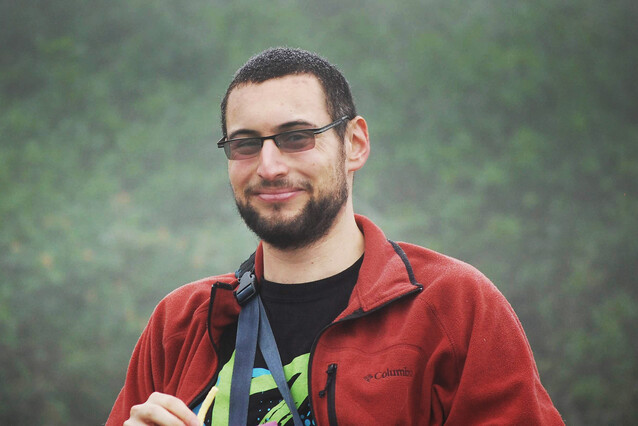Jacob Schreiber to join IMP faculty as visiting scientist
Artificial intelligence and deep learning mark the latest frontier of discovery in the molecular life sciences. In autumn, Jacob Schreiber’s expertise in these fields will come to the Vienna BioCenter: Schreiber will join the IMP faculty in a novel role of a visiting scientist for one year. The position will place him ideally for exploring synergies and further enhancing scientific collaboration at the campus.
When Jacob Schreiber joins the IMP as a visiting scientist in September, he will meet a faculty eager to explore synergies and building bridges. While the collaborative spirit of the Vienna BioCenter often receives praise, the anticipation of exciting joint projects with Schreiber is particularly high due to his background in artificial intelligence and deep learning.
Schreiber’s research aims to understand the regulatory role of individual building blocks of the genome and how this role changes across all cells in our body. For this, he developed tools for editing genomic sequences to elicit specific characteristics; for jointly modelling thousands of genome-wide regulatory experiments and imputing those that have not yet been performed; and a method that uses input/output relationships to guide future experimental efforts.
“We are really excited to have Jacob join as a visiting member of our faculty,” says IMP Scientific Director Jan-Michael Peters. “I think that the research questions of many IMP scientists will be a great substrate for fruitful collaborations, and I hope that the outcome of these will help us grow further in emerging fields.”
Jacob Schreiber will join the IMP after postdoctoral research with Anshul Kundaje at Stanford University. “During my time in Vienna, I will continue my work on ubiquitous computation in genomics,” says Schreiber. This will involve the development of new, genome-sequence-based deep learning models to study the regulatory code that switches genes on and off and which is stored in genomes. Schreiber also plans to build toolkits in ways that make using and extracting knowledge from them simple and scalable. “Put simply: methods are most valuable when used, and the most important people who will use your methods are those without your background.” Schreiber’s assignment at the IMP will last for one year, after which he will return to the US to take up a faculty position at the University of Massachusetts’ Chan Medical School.
Before his postdoc, Schreiber did a PhD in Computer Science and Engineering as well as Advanced Data Science at the University of Washington, where he had also obtained a Master of Science degree. He had done his undergraduate degree in biomolecular engineering at the University of California in Santa Cruz. Schreiber is on the editorial board of scientific journals dedicated to machine learning and artificial intelligence research. He was presented with a Ruth L. Kirschsten Award and has work experience in both academic and private sector environments. Schreiber contributes to the community and wider audiences with a widely followed twitter persona and, previously, through guest hosting episodes of the podcast “The Bioinformatics Chat”.
Further Reading
Jacob Schreiber’s website - https://jmschrei.github.io/
Jacob Schreiber on Twitter (X)
